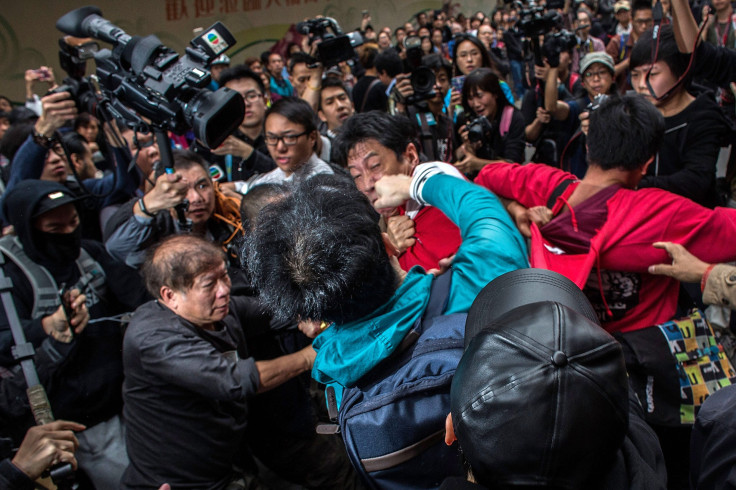China To Curb Visits To Hong Kong By Shenzhen Residents - NPC Deputy

HONG KONG (Reuters) - China will limit visits by residents of the city of Shenzhen to neighbouring Hong Kong, a politician and media said on Sunday, following recent tension in the former British colony over growing numbers of mainland visitors.
Hong Kong has seen a groundswell of discontent over the number of mainland Chinese visiting the crowded city where frustration with what many residents see as attempts by Beijing to restrict democracy erupted in protests last year.
Shenzhen authorities would soon restrict residents to one Hong Kong visit a week, from an unlimited number of daily trips, said Michael Tien, a Hong Kong member of China's parliament, the National People's Congress.
"It will definitely happen," Tien told Reuters. "I've heard from very reliable government sources."
Hong Kong returned to Chinese rule in 1997 under a "one country, two systems" formula that ensured it autonomy. Visitors from the mainland need permission to visit.
Media said the curbs could come into effect as early as Monday. Shenzhen is just a short train ride from Hong Kong.
On the website where residents of Shenzhen apply for Hong Kong visas, the option for multiple visits a year could not be selected on Sunday.
There was no immediate response or confirmation from the Shenzhen government.
The Hong Kong government said any announcement would come from mainland authorities. But it acknowledged, in a statement, that it had proposed concrete measures to adjust visas that allow Shenzhen residents multiple entries to Hong Kong.
Some 47 million mainland Chinese visitors streamed into Hong Kong last year, more than six times its population.
While the tide has powered growth with spending in luxury shops, restaurants and hotels, mainland visitors have been blamed for pushing up shop rents and property prices, and stripping shops of daily necessities such as baby formula and cosmetics.
Travel industry executives say political tension in Hong Kong including democracy demonstrations and protests against mainland shoppers, in which some people have been harassed, have discouraged mainland tourists.
The travel industry had spoken out against any curbs on visitors.
Hong Kong's retail sales fell 2 percent in the first two months of the year, stoking concern of a retail slowdown due to a drop in tourists.
"I can go shopping in the U.S., Japan and South Korea in future, where service is good and prices are cheap," someone called "HiReaper" wrote on Weibo, China's answer to Twitter.
In 2003, Beijing opened the floodgates to mainland tourists after Hong Kong's tourism slumped because of an outbreak of severe acute respiratory syndrome.
(Editing by Susan Fenton, Robert Birsel)
© Copyright Thomson Reuters {{Year}}. All rights reserved.





















